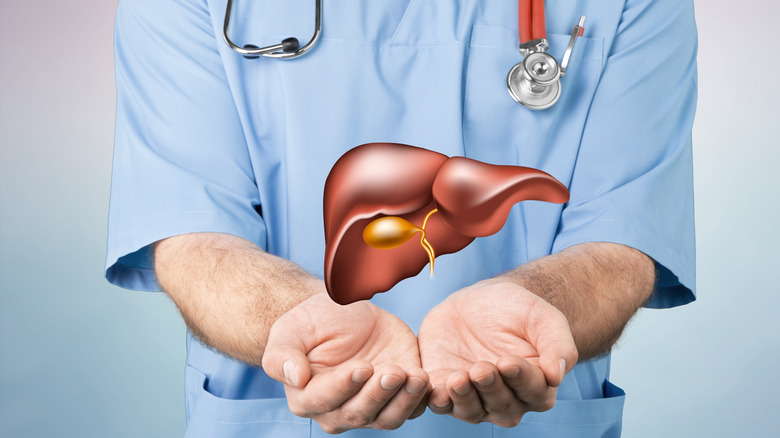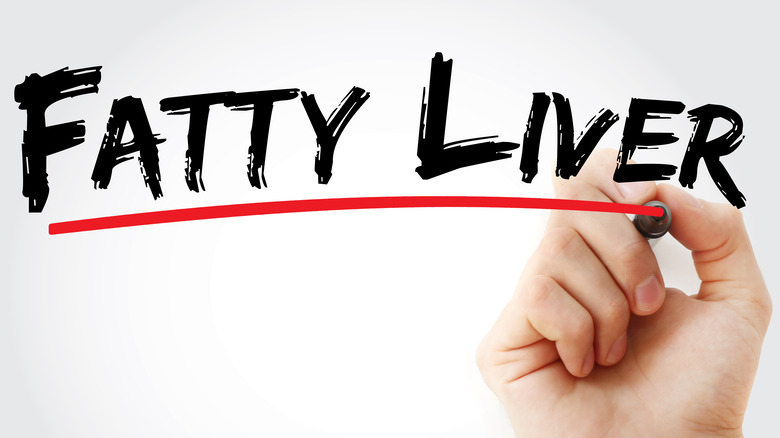Can You Get Fatty Liver Disease Without Drinking?
Your liver is critical for good health because of the many jobs it performs throughout a single day. The American Liver Foundation explains that your liver has a number of functions that include removing toxins from your blood, storing sugar for energy, and making the bile necessary to digest fat.
Fatty liver disease is a condition that results from too much fat being stored in the liver. The liver contains small amounts of fat, but when that level exceeds 5% to 10% of the liver's weight, it can become problematic and cause damage in some people (via Cleveland Clinic). This condition is called fatty liver disease. Fatty liver disease is sometimes thought of as a side effect of drinking too much alcohol, but it is incorrect to think that this is the only way you can develop the condition. The truth is you can get it without drinking, and while doctors don't know what exactly causes it, they believed it is associated with obesity, insulin resistance, and high triglycerides (via Mayo Clinic). There are two kinds of fatty liver disease: alcohol-related fatty liver disease and nonalcoholic fatty liver disease, according to WebMD.
Fatty liver disease can be dangerous
Fatty liver disease of either type can lead to inflammation and scar tissue, according to Cleveland Clinic. When scar tissue begins to replace healthy tissue, it causes severe damage called cirrhosis. This condition reduces liver function, and it can result in liver cancer and even liver failure.
There are two types of nonalcoholic fatty liver disease: simple fatty liver and nonalcoholic steatohepatitis. With simple fatty liver disease, fat is present, but there is no inflammation (via WebMD). Most people with this condition don't experience serious liver problems. However, nonalcoholic steatohepatitis means the liver is inflamed and that scarring may occur. This condition is similar to alcoholic fatty liver disease.
Doctors see nonalcoholic fatty liver disease the most of chronic liver diseases, according to the Mayo Clinic. The good news is that the liver can heal. Losing weight, eating a healthy diet, and exercising can possibly reduce liver fat and heal the liver in the early stages of the disease, per Cleveland Clinic.


